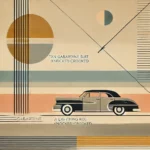 | |
The Diary of a Successful Man | |
| Author | Ernest Dowson |
|---|---|
| Published |
1890
|
| Language | English |
| Nationality | English |
| Genre | Literary Fiction |
1890 Short Story
The Diary of a Successful Man
The Diary of a Successful Man is an English Literary Fiction short story by English writer Ernest Dowson. It was first published in 1890.
The Diary of a Successful Man
by Ernest Dowson
1st October, 188— Hotel du Lys, Bruges.
After all, few places appeal to my imagination more potently than this autumnal old city—the most mediæval town in Europe. I am glad that I have come back here at last. It is melancholy indeed, but then at my age one’s pleasures are chiefly melancholy. One is essentially of the autumn, and it is always autumn at Bruges. I thought I had been given back my youth when I awoke this morning and heard the Carillon, chiming out, as it has done, no doubt, intermittently, since I heard it last—twenty years ago. Yes, for a moment, I thought I was young again—only for a moment. When I went out into the streets and resumed acquaintance with all my old haunts, the illusion had gone. I strolled into Saint Sauveur’s, wandered a while through its dim, dusky aisles, and then sat down near the high altar, where the air was heaviest with stale incense, and indulged in retrospect. I was there for more than an hour. I doubt whether it was quite wise. At my time of life one had best keep out of cathedrals; they are vault-like places, pregnant with rheumatism—at best they are full of ghosts. And a good many revenants visited me during that hour of meditation. Afterwards I paid a visit to the Memlings in the Hôpital. Nothing has altered very much; even the women, with their placid, ugly Flemish faces, sitting eternally in their doorways with the eternal lace-pillow, might be the same women. In the afternoon I went to the Béguinage, and sat there long in the shadow of a tree, which must have grown up since my time, I think. I sat there too long, I fear, until the dusk and the chill drove me home to dinner. On the whole perhaps it was a mistake to come back. The sameness of this terribly constant old city seems to intensify the change that has come to oneself. Perhaps if I had come back with Lorimer I should have noticed it less. For, after all, the years have been kind to me, on the whole; they have given me most things which I set my heart upon, and if they had not broken a most perfect friendship, I would forgive them the rest. I sometimes feel, however, that one sacrifices too much to one’s success. To slave twenty years at the Indian bar has its drawbacks, even when it does leave one at fifty, prosperous à mourir d’ennui. Yes, I must admit that I am prosperous, disgustingly prosperous, and—my wife is dead, and Lorimer—Lorimer has altogether passed out of my life. Ah, it is a mistake to keep a journal—a mistake.
3rd October.
I vowed yesterday that I would pack my portmanteau and move on to Brussels, but to-day finds me still at Bruges. The charm of the old Flemish city grows on me. To-day I carried my peregrinations further a-field. I wandered about the Quais and stood on the old bridge where one obtains such a perfect glimpse, through a trellis of chestnuts, of the red roof and spires of Notre Dame. But the particular locality matters nothing; every nook and corner of Bruges teems with reminiscences. And how fresh they are! At Bombay I had not time to remember or to regret; but to-day the whole dead and forgotten story rises up like a ghost to haunt me. At times, moreover, I have a curious, fantastic feeling, that some day or other, in some mildewing church, I shall come face to face with Lorimer. He was older than I, he must be greatly altered, but I should know him. It is strange how intensely I desire to meet him. I suppose it is chiefly curiosity. I should like to feel sure of him, to explain his silence. He cannot be dead. I am told that he had pictures in this last Academy—and yet, never to have written—never once, through all these years. I suppose there are few friendships which can stand the test of correspondence. Still it is inexplicable, it is not like Lorimer. He could not have harboured a grudge against me—for what? A boyish infatuation for a woman who adored him, and whom he adored. The idea is preposterous, they must have laughed over my folly often, of winter evenings by their fireside. For they married, they must have married, they were made for each other and they knew it. Was their marriage happy I wonder? Was it as successful as mine, though perhaps a little less commonplace? It is strange, though, that I never heard of it, that he never wrote to me once, not through all those years.
4th October.
Inexplicable! Inexplicable! Did they marry after all? Could there have been some gigantic misunderstanding? I paid a pilgrimage this morning which hitherto I had deferred, I know not precisely why. I went to the old house in the Rue d’Alva—where she lived, our Comtesse. And the sight of its grim, historic frontal made twenty years seem as yesterday. I meant to content myself with a mere glimpse at the barred windows, but the impulse seized me to ring the bell which I used to ring so often. It was a foolish, fantastic impulse, but I obeyed it. I found it was occupied by an Englishman, a Mr. Venables—there seem to be more English here than in my time—and I sent in my card and asked if I might see the famous dining-room. There was no objection raised, my host was most courteous, my name, he said, was familiar to him; he is evidently proud of his dilapidated old palace, and has had the grace to save it from the attentions of the upholsterer. No! twenty years have produced very little change in the room where we had so many pleasant sittings. The ancient stamped leather on the walls is perhaps a trifle more ragged, the old oak panels not blacker—that were impossible—but a trifle more worm-eaten; it is the same room. I must have seemed a sad boor to my polite cicerone as I stood, hat in hand, and silently took in all the old familiar details. The same smell of mildewed antiquity, I could almost believe the same furniture. And indeed my host tells me that he took over the house as it was, and that some of the chairs and tables are scarcely more youthful than the walls. Yes, there by the huge fireplace was the same quaintly carved chair where she always sat. Ah, those delicious evenings when one was five-and-twenty. For the moment I should not have been surprised if she had suddenly taken shape before my eyes, in the old seat, the slim, girlish woman in her white dress, her hands folded in her lap, her quiet eyes gazing dreamily into the red fire, a subtile air of distinction in her whole posture…. She would be old now, I suppose. Would she? Ah no, she was not one of the women who grow old…. I caught up the thread of my host’s discourse just as he was pointing it with a sharp rap upon one of the most time-stained panels.
‘Behind there,’ he remarked, with pardonable pride, ‘is the secret passage where the Duc d’Alva was assassinated.’
I smiled apologetically.
‘Yes,’ I said, ‘I know it. I should explain perhaps—my excuse for troubling you was not merely historic curiosity. I have more personal associations with this room. I spent some charming hours in it a great many years ago—’ and for the moment I had forgotten that I was nearly fifty.
‘Ah,’ he said, with interest, ‘you know the late people, the
Fontaines.’
‘No,’ I said, ‘I am afraid I have never heard of them. I am very ancient. In my time it belonged to the Savaresse family.’
‘So I have heard,’ he said, ‘but that was long ago. I have only had it a few years. Fontaine my landlord bought it from them. Did you know M. le Comte!’
‘No,’ I answered, ‘Madame la Comtesse. She was left a widow very shortly after her marriage. I never knew M. le Comte.’
My host shrugged his shoulders.
‘From all accounts,’ he said, ‘you did not lose very much.’
‘It was an unhappy marriage,’ I remarked, vaguely, ‘most unhappy. Her second marriage promised greater felicity.’
Mr. Venables looked at me curiously.
‘I understood,’ he began, but he broke off abruptly. ‘I did not know
Madame de Savaresse married again.’
His tone had suddenly changed, it had grown less cordial, and we parted shortly afterwards with a certain constraint. And as I walked home pensively curious, his interrupted sentence puzzled me. Does he look upon me as an impostor, a vulgar gossip-monger? What has he heard, what does he know of her? Does he know anything? I cannot help believing so. I almost wish I had asked him definitely, but he would have misunderstood my motives. Yet, even so, I wish I had asked him.
6th October.
I am still living constantly in the past, and the fantastic feeling, whenever I enter a church or turn a corner that I shall meet Lorimer again, has grown into a settled conviction. Yes, I shall meet him, and in Bruges…. It is strange how an episode which one has thrust away out of sight and forgotten for years will be started back into renewed life by the merest trifle. And for the last week it has all been as vivid as if it happened yesterday. To-night I have been putting questions to myself—so far with no very satisfactory answer. Was it a boyish infatuation after all? Has it passed away as utterly as I believed? I can see her face now as I sit by the fire with the finest precision of detail. I can hear her voice, that soft, low voice, which was none the less sweet for its modulation of sadness. I think there are no women like her now-a-days—none, none! Did she marry Lorimer? and if not—? It seems strange now that we should have both been so attracted, and yet not strange when one considers it. At least we were never jealous of one another. How the details rush back upon one! I think we must have fallen in love with her at the same moment—for we were together when we saw her for the first time, we were together when we went first to call on her in the Rue d’Alva—I doubt if we ever saw her except together. It was soon after we began to get intimate that she wore white again. She told us that we had given her back her youth. She joined our sketching expeditions with the most supreme contempt for les convenances; when she was not fluttering round, passing from Lorimer’s canvas to mine with her sweetly inconsequent criticism, she sat in the long grass and read to us—André Chénier and Lamartine. In the evening we went to see her; she denied herself to the rest of the world, and we sat for hours in that ancient room in the delicious twilight, while she sang to us—she sang divinely—little French chansons, gay and sad, and snatches of operette. How we adored her! I think she knew from the first how it would be and postponed it as long as she could. But at last she saw that it was inevitable…. I remember the last evening that we were there—remember—shall I ever forget it? We had stayed beyond our usual hour and when we rose to go we all of us knew that those pleasant irresponsible evenings had come to an end. And both Lorimer and I stood for a moment on the threshold before we said good-night, feeling I suppose that one of us was there for the last time.
And how graceful, how gracious she was as she held out one little white hand to Lorimer and one to me. ‘Good-night, dear friends,’ she said, ‘I like you both so much—so much. Believe me, I am grateful to you both—for having given me back my faith in life, in friendship, believe that, will you not, mes amis?’ Then for just one delirious moment her eyes met mine and it seemed to me—ah, well, after all it was Lorimer she loved.
7th October.
It seems a Quixotic piece of folly now, our proposal we would neither take advantage of the other, but we both of us must speak. We wrote to her at the same time and likely enough, in the same words, we posted our letters by the same post. To-day I had the curiosity to take out her answer to me from my desk, and I read it quite calmly and dispassionately, the poor yellow letter with the faded ink, which wrote ‘Finis’ to my youth and made a man of me.
‘Pauvre cher Ami,’ she wrote to me, and when I had read that, for the first time in my life and the only time Lorimer’s superiority was bitter to me. The rest I deciphered through scalding tears.
‘Pauvre cher Ami, I am very sorry for you, and yet I think you should have guessed and have spared yourself this pain, and me too a little. No, my friend, that which you ask of me is impossible. You are my dear friend, but it is your brother whom I love—your brother, for are you not as brothers, and I cannot break your beautiful friendship. No, that must not be. See, I ask one favour of you—I have written also to him, only one little word “Viens,”—but will you not go to him and tell him for me? Ah, my brother, my heart bleeds for you. I too have suffered in my time. You will go away now, yes, that is best, but you will return when this fancy of yours has passed. Ah forgive me—that I am happy—forgive us, forgive me. Let us still be friends. Adieu! Au revoir.
‘Thy Sister,
DELPHINE.’
I suppose it was about an hour later that I took out my letter to Lorimer. I told him as I told myself, that it was the fortune of war, that she had chosen the better man, but I could not bear to stay and see their happiness. I was in London before the evening. I wanted work, hard, grinding work, I was tired of being a briefless barrister, and as it happened, an Indian opening offered itself at the very moment when I had decided that Europe had become impossible to me. I accepted it, and so those two happy ones passed out of my life.
Twenty years ago! and in spite of his promise he has never written from that day till this, not so much as a line to tell me of his marriage. I made a vow then that I would get over my folly, and it seemed to me that my vow was kept. And yet here to-day, in Bruges, I am asking myself whether after all it has been such a great success, whether sooner or later one does not have to pay for having been hard and strong, for refusing to suffer…. I must leave this place, it is too full of Madame de Savaresse…. Is it curiosity which is torturing me? I must find Lorimer. If he married her, why has he been so persistently silent? If he did not marry her, what in Heaven’s name does it mean? These are vexing questions.
10th October.
In the Church of the Dames Rouges, I met to-day my old friend Sebastian Lorimer. Strange! Strange! He was greatly altered, I wonder almost that I recognised him. I had strolled into the church for benediction, for the first time since I have been back here, and when the service was over and I swung back the heavy door, with the exquisite music of the ‘O Salutaris,’ sung by those buried women behind the screen still echoing in my ear, I paused a moment to let a man pass by me. It was Lorimer, he looked wild and worn; it was no more than the ghost of my old friend. I was shocked and startled by his manner. We shook hands quite impassively as if we had parted yesterday. He talked in a rambling way as we walked towards my hotel, of the singing of the nuns, of the numerous religious processions, of the blessed doctrine of the intercession of saints. The old melodious voice was unchanged, but it was pitched in the singularly low key which I have noticed some foreign priests acquire who live much in churches. I gather that he has become a Catholic. I do not know what intangible instinct, or it may be fear, prevented me from putting to him the vital question which has so perplexed me. It is astonishing how his face has changed, what an extraordinary restlessness his speech and eye have acquired. It never was so of old. My first impression was that he was suffering from some acute form of nervous disorder, but before I left him a more unpleasant suspicion was gradually forced upon me. I cannot help thinking that there is more than a touch of insanity in my old friend. I tried from time to time to bring him down to personal topics, but he eluded them dexterously, and it was only for a moment or so that I could keep him away from the all absorbing subject of the Catholic Church, which seems in some of its more sombre aspects to exercise an extraordinary fascination over him. I asked him if he often visited Bruges.
He looked up at me with a curious expression of surprise.
‘I live here,’ he said, ‘almost always.’ I have done so for years….’ Presently he added hurriedly, ‘You have come back. I thought you would come back, but you have been gone a long time—oh, a long time! It seems years since we met. Do you remember—?’ He checked himself; then he added in a low whisper, ‘We all come back, we all come back.’
He uttered a quaint, short laugh.
‘One can be near—very near, even if one can never be quite close.’
He tells me that he still paints, and that the Academy, to which he sends a picture yearly, has recently elected him an Associate. But his art does not seem to absorb him as it did of old, and he speaks of his success drily and as a matter of very secondary importance. He refused to dine with me, alleging an engagement, but that so hesitatingly and with such vagueness that I could perceive it was the merest pretext. His manner was so strange and remote that I did not venture to press him. I think he is unhappily conscious of his own frequent incoherencies and at moments there are quite painful pauses when he is obviously struggling with dumb piteousness to be lucid, to collect himself and pick up certain lost threads in his memory. He is coming to see me this evening, at his own suggestion, and I am waiting for him now with a strange terror oppressing me. I cannot help thinking that he possesses the key to all that has so puzzled me, and that to-night he will endeavour to speak.
11th October.
Poor Lorimer! I have hardly yet got over the shock which his visit last night caused me, and the amazement with which I heard and read between the lines of his strange confession. His once clear reason is, I fear, hopelessly obscured, and how much of his story is hallucination, I cannot say. His notions of time and place are quite confused, and out of his rambling statement I can only be sure of one fact. It seems that he has done me a great wrong, an irreparable wrong, which he has since bitterly repented.
And in the light of this poor wretch’s story, a great misunderstanding is rolled away, and I am left with the conviction that the last twenty years have been after all a huge blunder, an irrevocable and miserable mistake. Through my own rash precipitancy and Lorimer’s weak treachery, a trivial mischance that a single word would have rectified, has been prolonged beyond hope of redress. It seems that after all it was not Lorimer whom she chose. Madame de Savaresse writing to us both twenty years ago, made a vital and yet not inexplicable mistake. She confused her envelopes, and the letter which I received was never meant for me, although it was couched in such ambiguous terms that until to-day the possibility of this error never dawned on me. And my letter, the one little word of which she spoke, was sent to Lorimer. Poor wretch! he did me a vital injury—yes, I can say that now—a vital injury, but on the whole I pity him. To have been suddenly dashed down from the pinnacles of happiness, it must have been a cruel blow. He tells me that when he saw her that afternoon and found out his mistake, he had no thought except to recall me. He actually came to London for that purpose, vowed to her solemnly that he would bring me back; it was only in England, that, to use his own distraught phrase, the Devil entered into possession of him. His half-insane ramblings gave me a very vivid idea of that fortnight during which he lay hid in London, trembling like a guilty thing, fearful at every moment that he might run across me and yet half longing for the meeting with the irresoluteness of the weak nature, which can conceive and to a certain extent execute a lâcheté, yet which would always gladly yield to circumstance and let chance or fate decide the issue. And to the very last Lorimer was wavering—had almost sought me out, and thrown himself on my mercy, when the news came that I had sailed.
Destiny who has no weak scruples, had stepped in and sealed Delphine’s mistake for all time, after her grim fashion. When he went back to Bruges, and saw Madame de Savaresse, I think she must have partly guessed his baseness. Lorimer was not strong enough to be a successful hypocrite, and that meeting, I gather, was also their final parting. She must have said things to him in her beautiful quiet voice which he has never forgotten. He went away and each day he was going to write to me, and each day he deferred it, and then he took up the Times one morning and read the announcement of my marriage. After that it seemed to him that he could only be silent….
Did she know of it too? Did she suffer or did she understand? Poor woman! poor woman! I wonder if she consoled herself, as I did, and if so how she looks back on her success? I wonder whether she is happy, whether she is dead? I suppose these are questions which will remain unanswered. And yet when Lorimer left me at a late hour last night, it seemed to me that the air was full of unspoken words. Does he know anything of her now! I have a right to ask him these things. And to-morrow I am to meet him, he made the request most strangely—at the same place where we fell in with each other to-day—until to-morrow then!
12th October.
I have just left Sebastian Lorimer at the Church of the Dames Rouges. I hope I was not cruel, but there are some things which one can neither forget nor forgive, and it seemed to me that when I knew the full measure of the ruin he had wrought, my pity for him withered away. ‘I hope, Lorimer,’ I said, ‘that we may never meet again.’ And, honestly, I cannot forgive him. If she had been happy, if she had let time deal gently with her—ah yes, even if she were dead—it might be easier. But that this living entombment, this hopeless death in life should befall her, she so magnificently fitted for life’s finer offices, ah, the pity of it, the pity of it!… But let me set down the whole sad story as it dawned upon me this afternoon in that unearthly church. I was later than the hour appointed; vespers were over and a server, taper in hand, was gradually transforming the gloom of the high altar into a blaze of light. With a strange sense of completion I took my place next to the chair by which Lorimer, with bowed head, was kneeling, his eyes fixed with a strange intentness on the screen which separated the outer worshippers from the chapel or gallery which was set apart for the nuns. His lips moved from time to time spasmodically, in prayer or ejaculation: then as the jubilant organ burst out, and the officiating priest in his dalmatic of cloth of gold passed from the sacristy and genuflected at the altar, he seemed to be listening in a very passion of attention. But as the incense began to fill the air, and the Litany of Loreto smote on my ear to some sorrowful, undulating Gregorian, I lost thought of the wretched man beside me; I forgot the miserable mistake that he had perpetuated, and I was once more back in the past—with Delphine—kneeling by her side. Strophe by strophe that perfect litany rose and was lost in a cloud of incense, in the mazy arches of the roof.
‘Janua cœli,
Stella matutina,
Salus infirmorum, Ora pro nobis!’
In strophe and antistrophe: the melancholy, nasal intonation of the priest died away, and the exquisite women’s voices in the gallery took it up with exultation, and yet with something like a sob—a sob of limitation.
‘Refugium peccatorum,
Consolatrix afflictorum,
Auxilium Christianorum, Ora pro nobis!’
And so on through all the exquisite changes of the hymn, until the time of the music changed, and the priest intoned the closing line.
‘Ora pro nobis, Sancta Dei Genetrix!’
and the voices in the gallery answered:
‘Ut digni efficiamur promissionibus Christi.’
There was one voice which rose above all the others, a voice of marvellous sweetness and power, which from the first moment had caused me a curious thrill. And presently Lorimer bent down and whispered to me: ‘So near,’ he murmured, ‘and yet so far away—so near, and yet never quite close!’
But before he had spoken I had read in his rigid face, in his eyes fixed with such a passion of regret on the screen, why we were there—whose voice it was we had listened to.
I rose and went out of the church quietly and hastily; I felt that to stay there one moment longer would be suffocation…. Poor woman! so this is how she sought consolation, in religion! Well, there are different ways for different persons—and for me—what is there left for me? Oh, many things, no doubt, many things. Still, for once and for the last time, let me set myself down as a dreary fraud. I never forgot her, not for one hour or day, not even when it seemed to me that I had forgotten her most, not even when I married. No woman ever represented to me the same idea as Madame de Savaresse. No woman’s voice was ever sweet to me after hers, the touch of no woman’s hand ever made my heart beat one moment quicker for pleasure or for pain, since I pressed hers for the last time on that fateful evening twenty years ago. Even so—!…
When the service was over and the people had streamed out and dispersed, I went back for the last time into the quiet church. A white robed server was extinguishing the last candle on the altar; only the one red light perpetually vigilant before the sanctuary, made more visible the deep shadows everywhere.
Lorimer was still kneeling with bowed head in his place. Presently he rose and came towards me. ‘She was there—Delphine—you heard her. Ah, Dion, she loves you, she always loves you, you are avenged.’
I gather that for years he has spent hours daily in this church, to be near her, and hear her voice, the magnificent voice rising above all the other voices in the chants of her religion. But he will never see her, for is she not of the Dames Rouges! And I remember now all the stories of the Order, of its strictness, its austerity, its perfect isolation. And chiefly, I remember how they say that only twice after one of these nuns has taken her vows is she seen of any one except those of her community; once, when she enters the Order, the door of the convent is thrown back and she is seen for a single moment in the scarlet habit of the Order, by the world, by all who care to gaze; and once more, at the last, when clad in the same coarse red garb, they bear her out quietly, in her coffin, into the church.
And of this last meeting, Lorimer, I gather, is always restlessly expectant, his whole life concentrated, as it were, in a very passion of waiting for a moment which will surely come. His theory, I confess, escapes me, nor can I guess how far a certain feverish remorse, an intention of expiation may be set as a guiding spring in his unhinged mind, and account, at least in part, for the fantastic attitude which he must have adopted for many years. If I cannot forgive him, at least I bear him no malice, and for the rest, our paths will hardly cross again. One takes up one’s life and expiates its errors, each after one’s several fashion—and my way is not Lorimer’s. And now that it is all so clear, there is nothing to keep me here any longer, nothing to bring me back again. For it seemed to me to-day, strangely enough, as though a certain candle of hope, of promise, of pleasant possibilities, which had flickered with more or less light for so many years, had suddenly gone out and left me alone in utter darkness, as the knowledge was borne in upon me that henceforth Madame de Savaresse had passed altogether and finally out of my life.
And so to-morrow—Brussels!







